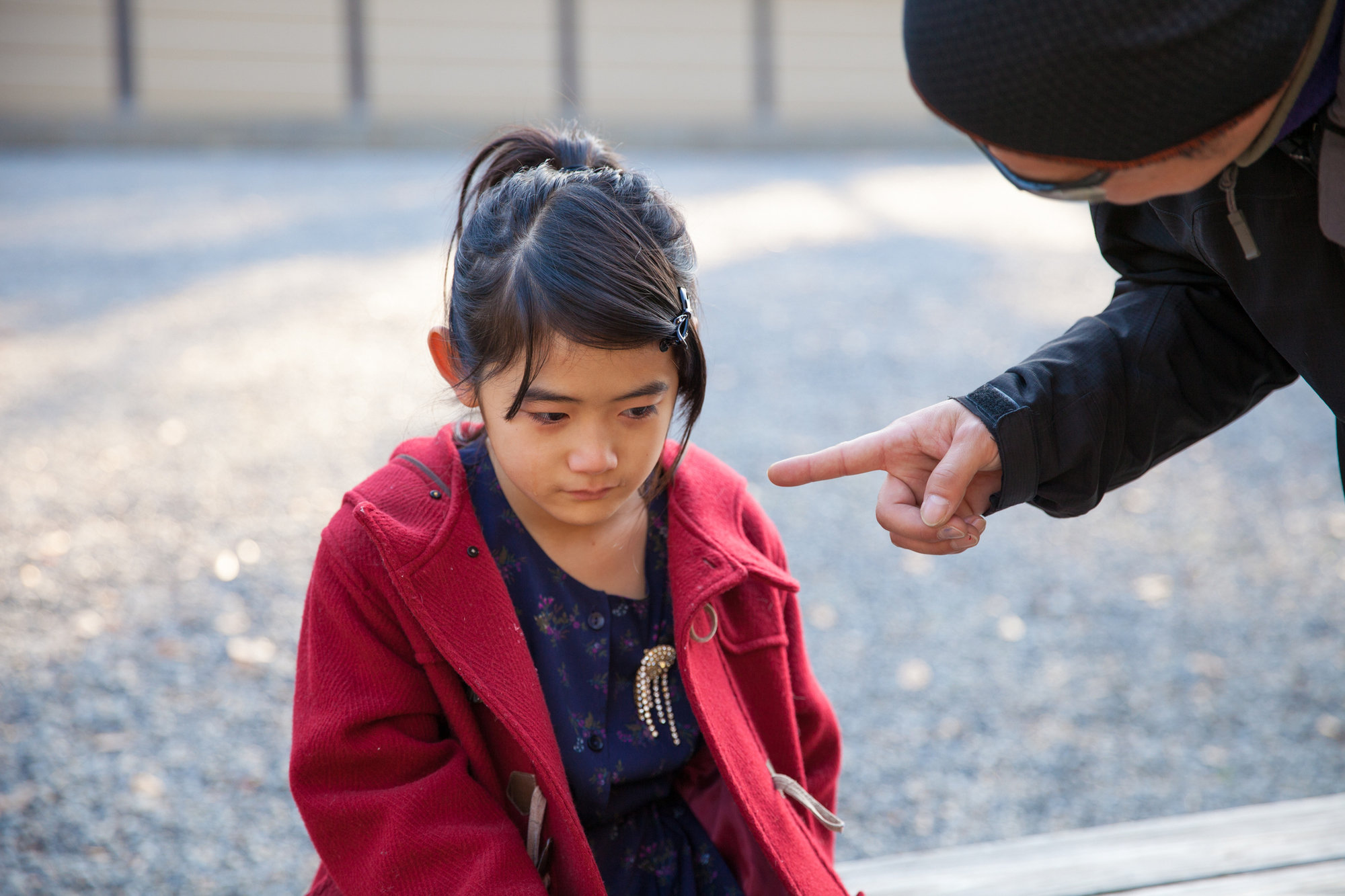
For a lot of adults, spanking was a normal part of growing up. Most people who are parents now either grew up with parents who spanked or knew other moms and dads who did, and spanking used to be considered an acceptable way to discipline kids. But in the past two decades, spanking has become a contentious issue among parents. Mounting scientific research shows that it's ineffective and can have a negative impact on kids. Now, in case that wasn't enough, the American Academy of Pediatrics (AAP) just came out against spanking kids.
In a new policy statement published in Pediatrics, the AAP instructs parents to drop spanking in favor of other "healthy forms of discipline."
The policy statement examines decades of research on spanking and child development, including the Fragile Families and Child Wellbeing Study, which followed 5,000 kids from 20 cities from birth to age 9. Researchers found that young children who were spanked more than twice per month at age 3 were more aggressive at age 5. If they were spanked at age 5, by age 9 they exhibited worse behavior than kids who weren't spanked.
It also cites a 2016 meta-analysis that found current research "does not support the finding of benefit from physical punishment in the long-term." Research also correlates spanking with increased aggression, antisocial behavior, mental health issues, intimate partner violence, and substance abuse.
"Optimal child development requires the active engagement of adults who, among other functions, teach children about acceptable behavior," the statement reads. Spanking, they now believe, is not a part of that.
The AAP wasn't exactly pro spanking before now, but the new policy statement is a much harder stance than the organization has taken in the past.
The last statement, issued in 1998, mandated that parents should be "encouraged and assisted in developing methods other than spanking in response to undesired behavior."
"In the 20 years since that policy was first published, there's been a great deal of additional research, and we're now much stronger in saying that parents should never hit their child and never use verbal insults that would humiliate or shame the child," said Dr. Robert Sege, co-author of the new policy statement and a pediatrician at the Floating Hospital for Children at Tufts Medical Center.
Despite the strong evidence against spanking, the new policy statement sparked outrage among parents who choose to spank.

In the discussion on CNN, parents cited everything from raising responsible kids to keeping kids out of jail as excuses to spank.


Some said parents just need to learn the difference between spanking and beating. But the guidelines note there is no such distinction.

In the new statement, corporal punishment is defined as "noninjurious, open-handed hitting with the intention of modifying child behavior" — so, what most parents know as "spanking" — and it shows that spanking has the same negative outcomes as any other kind of hitting.
Elizabeth Gershoff, who wrote the 2016 meta-analysis cited by the AAP, said of her findings, "We as a society think of spanking and physical abuse as distinct behaviors. Yet our research shows that spanking is linked with the same negative child outcomes as abuse, just to a slightly lesser degree.”
Many of us rationalize spanking because it's what we grew up with, but the AAP offered some positive discipline tactics parents can use instead.
For the most part, the AAP recommends time-outs and removal of privileges. "In preschool children, time-out (removal of positive parental attention) has been shown to increase compliance with parental expectations from ∼25 percent to 80 percent, and similar effectiveness is seen when used appropriately with older children," the statement notes. The key, doctors say, is being consistent, praising good behavior, sticking to reasonable stretches of time — around one minute per year of age — and never combining discipline with verbally abusive language.
For babies, Dr. Sege told CNN, "The best thing to do is just pick them up and move them somewhere else, distract them, change the subject — and that's usually all they need and they can handle it. Your average 6-month-old child doesn't have the ability to learn the rules. They will eventually."
He added, "The loving relationship between a child and their parents is the most important relationship that there is. Parents can use that relationship to teach their children right from wrong without inserting violence, shame and humiliation into that relationship. As a result, children are more likely to grow up feeling secure and positive, knowing how to regulate their own behavior."




